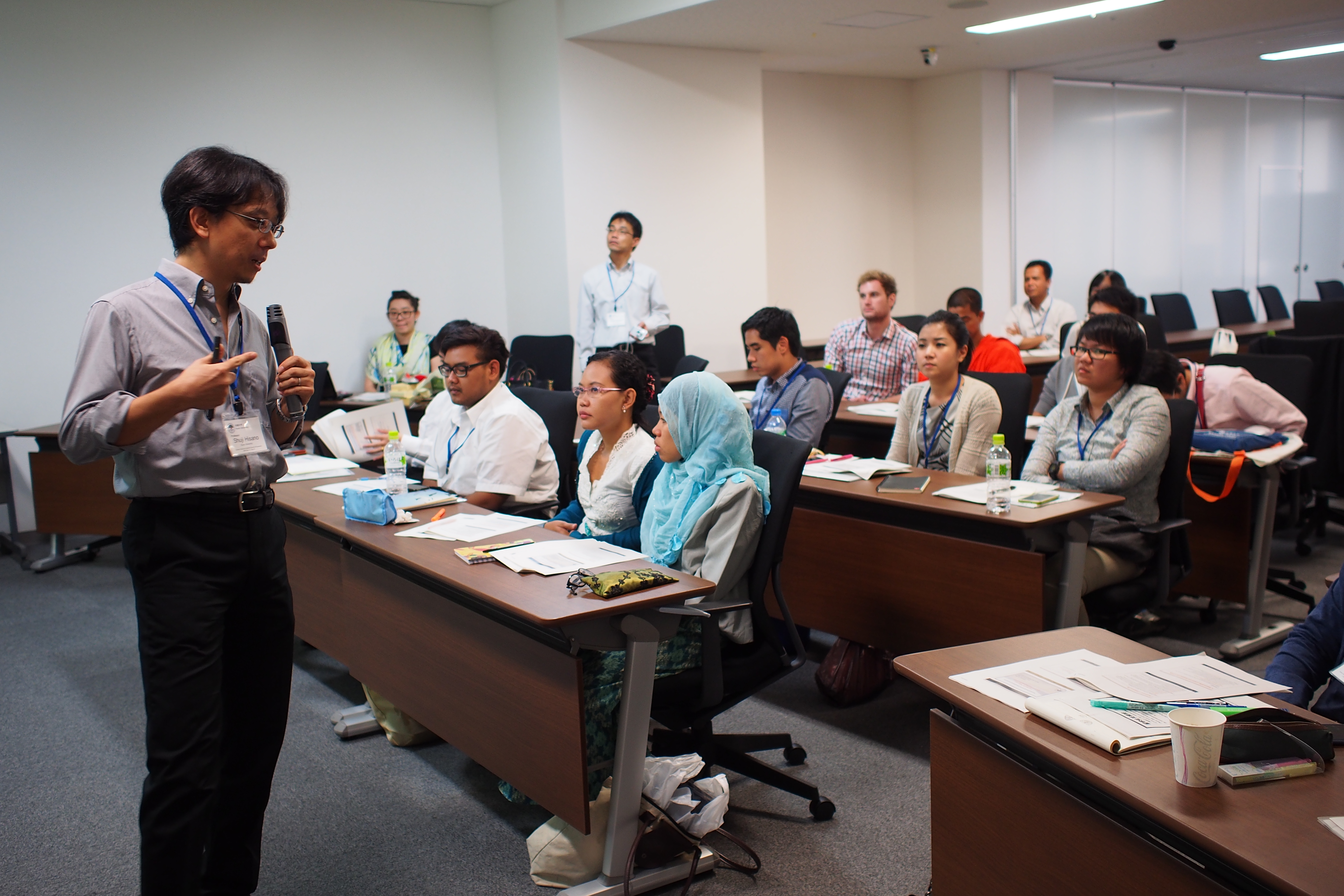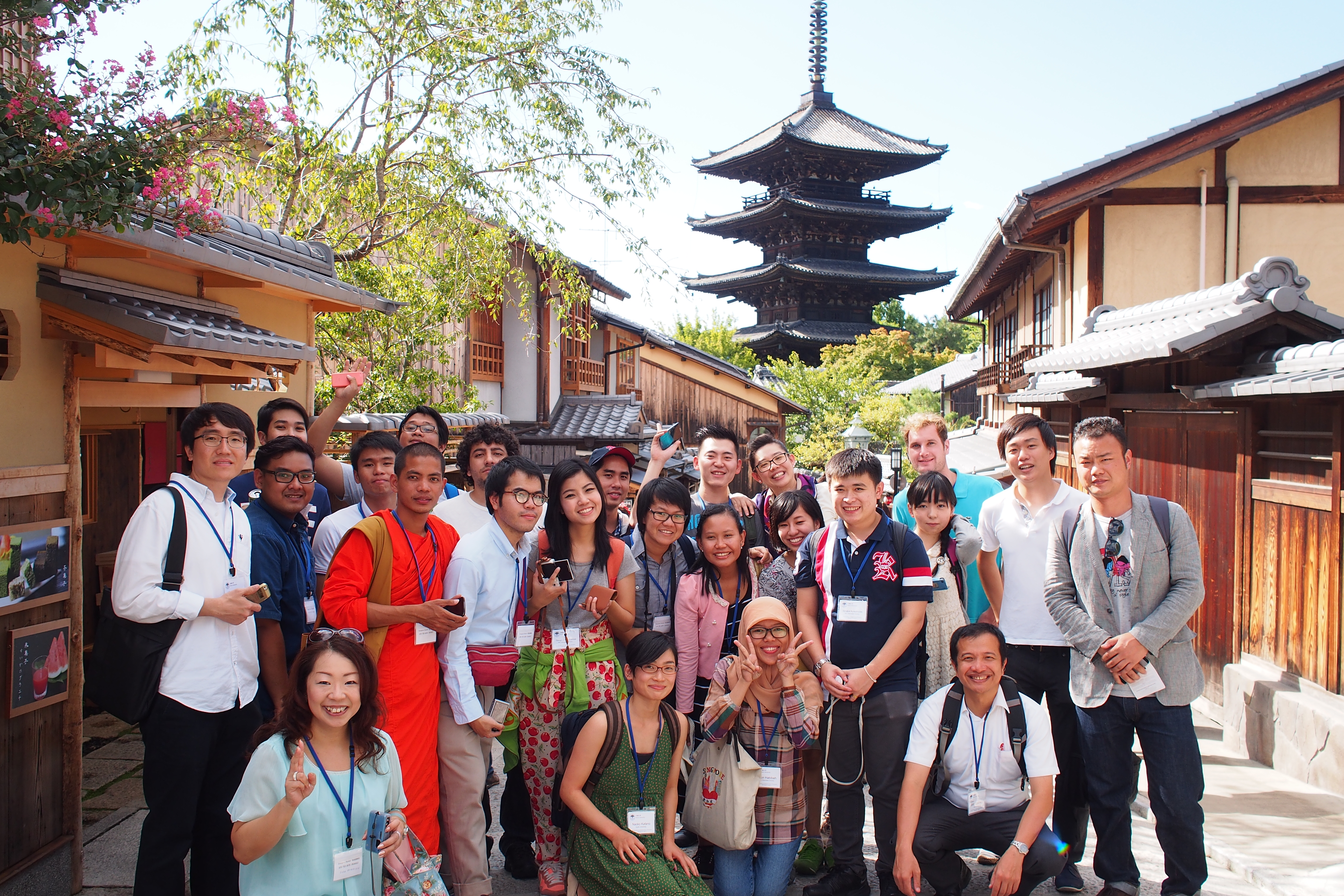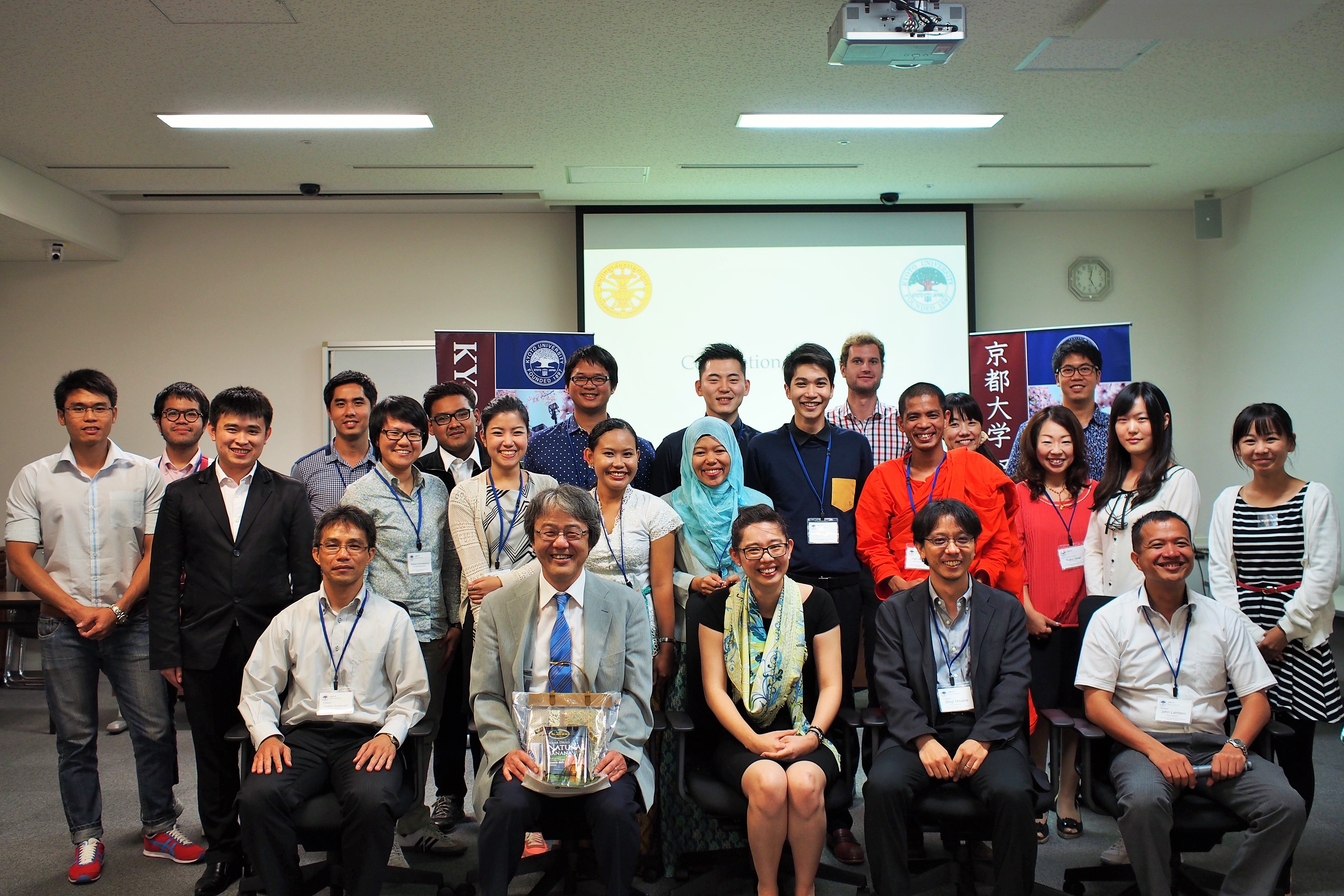Summer School at the Graduate School of Economics

Lecture by Prof. Hisano
The Summer School was held from September 13 to September 21. Fourteen graduate students from the countries of Indonesia, Myanmar, South Korea, Thailand, and the United States, and one faculty member—all from the Pridi Banomyong International College (PBIC), Thammasat University—came to Japan to participate in the summer school. They were joined by students and staff from different units of Kyoto University.
The summer school was composed of lectures and field trips that would touch on Japan and ASEAN in a sustainable environment. Professors from various units of the university made lectures on the following themes: culture and history, corporate governance, and industrial competitiveness in Japan; political economy and development issues in the ASEAN region; relationships between Japan and ASEAN; and on sustainability issues.

Participants visiting the Kiyomizu Temple
The schedule of the lectures and field trips was synchronized to examine both theory and reality, and their inter-linkages. After the lecture on history and culture, the participants visited the Kiyomizu Temple where they watched the Blue Dragon Dance. From there, they walked around the meandering historic streets to reach Maruyama Park and Yasaka Shrine. After the lectures on Japanese industries, the participants visited the Nishijin Textile Center and the Kyocera Museum. Lastly, after the lecture on agriculture and food issues, they went to Nose town in Osaka to visit Ozaki Farm and listen to Mr. Ray Ozaki who is one of the pioneers of organic farming in Japan.

Group Photo at the Closing Ceremony
To close the program, Professor Takekazu Iwamoto, who is the Dean of the Graduate School of Economics, presented each student with the certificate of completion. After the ceremony, a standing dinner was served where the participants enjoyed different types of Japanese cuisine.